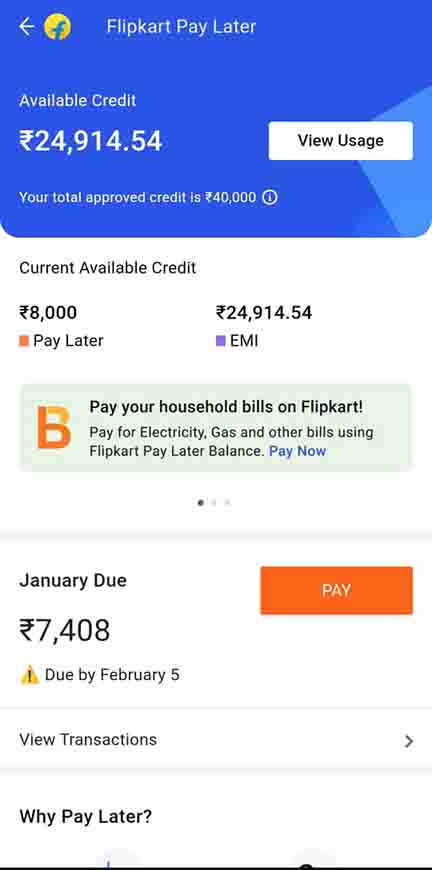What is a Small Business Administration (SBA) Business Loan
When it comes to launching or expanding a small business in the United States, securing the necessary funding is often a critical hurdle to overcome. One of the most reliable and well-known sources of financing for small businesses is the Small Business Administration (SBA) business loan. In this comprehensive guide, we’ll delve into the world of SBA business loans, exploring what they are, how they work, and how you can benefit from them. By the end of this article, you’ll be equipped with the knowledge needed to make informed decisions about using SBA loans to support your entrepreneurial endeavors.
1. Introduction
Small businesses are the lifeblood of the American economy, and they play a crucial role in job creation and innovation. However, to thrive and expand, these enterprises often need financial support. This is where the Small Business Administration (SBA) steps in, offering a range of loan programs to help small business owners access the funds they require to grow and succeed.
In this comprehensive guide, we’ll explore the world of SBA business loans, shedding light on the various loan programs, eligibility criteria, application process, advantages, challenges, and alternatives to SBA loans. Whether you’re a seasoned entrepreneur or a budding business owner, the knowledge you gain from this article will empower you to make informed decisions about funding your small business venture.
2. Understanding the Small Business Administration (SBA)
The Small Business Administration (SBA) is a federal agency established in 1953 to provide support and resources to small businesses in the United States. One of the primary functions of the SBA is to facilitate access to affordable capital through a variety of loan programs. These programs are designed to mitigate some of the risk associated with lending to small businesses, making it easier for entrepreneurs to secure the financing they need.
The SBA does not lend money directly to businesses. Instead, it partners with approved lenders, such as banks, credit unions, and non-profit organizations, to provide loans with favorable terms. In essence, the SBA acts as a guarantor, promising to repay a portion of the loan to the lender in case the borrower defaults. This government-backed guarantee makes lenders more willing to extend credit to small businesses, even if they might not qualify for traditional loans.
3. Types of SBA Business Loans
The SBA offers several loan programs, each tailored to specific needs and circumstances. Let’s delve into the most common ones:
3.1. 7(a) Loan Program
The 7(a) loan program is the SBA’s flagship offering, and it provides loans for a wide range of business purposes. These loans can be used for working capital, equipment purchase, business acquisition, and debt refinancing. They have a maximum loan amount of $5 million, with the SBA guaranteeing up to 85% of loans up to $150,000 and up to 75% for loans exceeding $150,000.
3.2. 504 Loan Program
The 504 loan program, also known as the Certified Development Company (CDC) program, is geared towards helping small businesses finance real estate and long-term equipment purchases. This program offers fixed-rate, long-term loans with a maximum amount of $5.5 million. The SBA typically guarantees 40% of the loan amount, with the remaining 50% contributed by a Certified Development Company and the borrower providing 10%.
3.3. Microloan Program
The Microloan program is aimed at small businesses that need smaller amounts of capital, usually up to $50,000. These loans are provided through nonprofit community-based lenders. While the SBA doesn’t directly lend to borrowers in this program, it provides guarantees and funds to intermediary lenders. Microloans can be used for various business purposes, including working capital, inventory, and equipment.
4. Eligibility Criteria
Eligibility for SBA loans varies depending on the specific program, but there are some common requirements you should consider before applying for an SBA loan:
- Small Business Status: Your business must meet the SBA’s definition of a small business. Size standards are based on the industry and can be determined by factors such as revenue, number of employees, and net worth.
- For-Profit Business: SBA loans are generally for for-profit businesses, so nonprofit organizations are typically not eligible.
- Use of Proceeds: You must use the loan for legitimate business purposes, such as working capital, equipment, real estate, or debt refinancing.
- Good Character: The SBA will assess your character and credit history. You should have a good credit score and a history of paying your bills on time.
- Collateral and Personal Guarantees: While the SBA may not require specific collateral, they may take liens on business assets or request personal guarantees from business owners.
- Owner’s Equity: You are expected to invest your own money or assets into the business.
- No Defaults on Federal Debt: If you have a history of defaulting on federal loans or debt, it can affect your eligibility.
It’s important to note that while these are general eligibility criteria, the specific requirements can vary based on the type of loan and the lender. Therefore, it’s crucial to consult with your chosen lender or an SBA expert to determine your eligibility.
5. The Application Process
Securing an SBA loan is a multi-step process that involves careful planning and diligent execution. Let’s break down the application process into two main phases:
5.1. Preparing for Your SBA Loan Application
Before you start your SBA loan application, it’s essential to lay the groundwork for a successful submission. Here are some crucial steps to consider:
- Business Plan: Prepare a detailed business plan that outlines your business goals, financial projections, and how the loan will support your objectives. This plan will serve as a roadmap for your business’s growth.
- Financial Documents: Organize your financial records, including income statements, balance sheets, tax returns, and bank statements. These documents will be critical in demonstrating your business’s financial health.
- Credit Score: Review your personal and business credit reports to ensure accuracy. Work on improving your credit score if it needs a boost, as this can significantly impact your loan terms.
- Loan Amount and Purpose: Determine the exact amount you need and what you will use it for. Lenders want to see that their funds will be invested wisely.
- Lender Selection: Choose a lender that specializes in your industry or loan type. Each lender may have different requirements and terms.
5.2. The SBA Loan Application Steps
Once you’re well-prepared, it’s time to move forward with the application process. Here are the general steps you can expect:
- Application Submission: Complete the loan application provided by your chosen lender. Many lenders offer online applications. Be prepared to provide personal and business information, along with the financial documents you’ve gathered.
- Underwriting: Lenders will review your application and assess your creditworthiness, business plan, and financial records. They may request additional documentation or information during this phase.
- Loan Approval: If your application meets the lender’s criteria, you’ll receive a loan offer. Carefully review the terms, interest rate, and repayment schedule.
- Acceptance and Funding: If you accept the loan offer, you’ll proceed to the final steps, which include signing the loan agreement and providing any additional documentation required. Once this is complete, you’ll receive your funds.
6. Advantages of SBA Business Loans
SBA business loans offer several advantages that make them an attractive choice for small business owners:
- Favorable Terms: SBA loans typically come with lower interest rates and longer repayment terms than traditional bank loans, making them more affordable for small businesses.
- Flexible Use of Funds: You can use SBA loan funds for various purposes, including working capital, real estate, equipment, and debt consolidation.
- Lower Down Payments: SBA loans often require smaller down payments, conserving your business’s capital for other needs.
- Government Guarantees: The SBA’s guarantee encourages lenders to offer loans to businesses that might not otherwise qualify.
- Resources and Support: The SBA provides valuable resources and support to small business owners, including counseling, training, and access to government contracts.
7. Challenges and Considerations
While SBA business loans have numerous benefits, there are also challenges and considerations to keep in mind:
- Stringent Eligibility Requirements: Meeting the SBA’s eligibility criteria can be challenging for some businesses, particularly startups or those with weaker credit histories.
- Complex Application Process: The application process can be time-consuming and requires thorough documentation.
- Personal Guarantees: Lenders may require personal guarantees, putting your personal assets at risk in case of default.
- Collateral: While SBA loans may not require specific collateral, lenders may still take liens on business assets.
- Competition: Due to the appeal of SBA loans, they can be highly competitive. It’s essential to stand out and present a compelling case for your loan application.
- Processing Time: SBA loans often take longer to process and receive funding compared to some other loan options.
8. Tips for a Successful SBA Loan Application
To increase your chances of a successful SBA loan application, consider the following tips:
- Hire an SBA Expert: Working with an SBA consultant or expert can guide you through the process and help you navigate the complex requirements.
- Maintain a Strong Credit Profile: Ensure your personal and business credit scores are in good standing.
- Prepare a Comprehensive Business Plan: Your business plan should be thorough and demonstrate a clear understanding of your business and its financial needs.
- Select the Right Lender: Choose a lender experienced in SBA lending and your specific industry.
- Be Honest and Transparent: Provide accurate and complete information in your application.
9. Alternatives to SBA Business Loans
While SBA loans are a fantastic resource for small businesses, they may not be the best fit for every situation. Consider these alternatives:
- Traditional Bank Loans: Some businesses may find traditional bank loans to be more accessible and better suited to their needs.
- Online Lenders: Online lenders offer quicker application processes but often come with higher interest rates.
- Business Lines of Credit: Business lines of credit provide flexible access to capital and are suitable for ongoing financing needs.
- Investors and Venture Capital: For some startups and high-growth companies, seeking investors or venture capital may be a viable option.
- Grants and Competitions: Depending on your business’s industry and focus, you might find grants and competitions that can provide non-repayable funding.
10. Conclusion
Securing the right financing is an essential part of growing a small business, and SBA business loans have been a reliable source of funding for entrepreneurs across the United States. By understanding the SBA, the various loan programs they offer, the eligibility criteria, and the application process, you can position yourself for success in obtaining the capital your business needs to thrive.
Remember that while SBA loans have favorable terms and government guarantees, they also come with stringent requirements and a complex application process. You should explore alternative financing options as well and choose the one that best aligns with your business’s goals and financial situation.
Whether you’re launching a new venture, expanding an existing business, or seeking to stabilize your operations, the information provided in this guide equips you with the knowledge to make informed decisions about SBA business loans. By leveraging this knowledge, you can navigate the world of small business financing with confidence and propel your entrepreneurial dreams to new heights.


